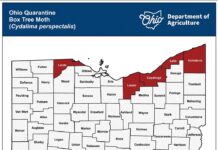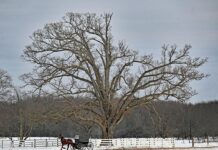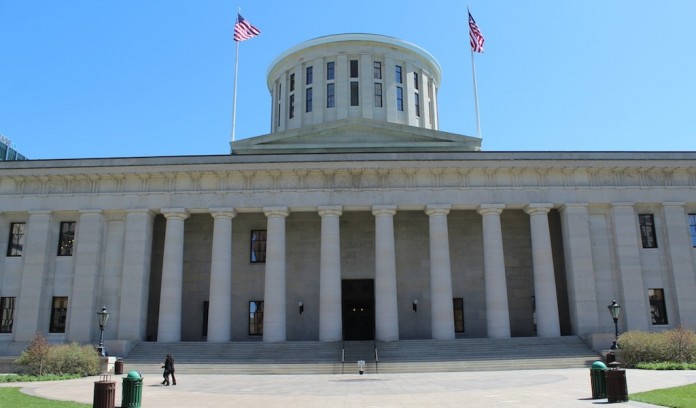SALEM, Ohio — A group of Ohio landowners who are hoping the courts can bring some relief to their farm real estate taxes will keep their case before a Franklin County judge.
In a Nov. 2 decision, Common Pleas Judge Jenifer French denied the state’s motion to have the case dismissed, and ruled the plaintiffs can file a second, amended complaint similar to the one they filed in 2015.
“We couldn’t be happier as of today, with the decision,” said attorney Kevin Roberts, who represents the plaintiffs. He said his office will now work to streamline and narrow the complaint.
The details
In the initial lawsuit, the landowners argued that the state determined CAUV values based on crop commodities — like corn, soybeans and wheat — and neglected to take into consideration acres that grow other crops, such as grapes, woodlands or pastureland, or are not suited to grow crops.
“Basically, they (state officials) used the rise in commodity prices as an excuse for the fact that they changed other parts,” said Roberts.
The plaintiffs argued that Ohio’s CAUV law requires rates to be determined according to different “land use patterns,” which include livestock, timberland and pastureland, in addition to “cropping.”
The case was first filed in Ashtabula County Court of Common Pleas, in June of 2015, but was later transferred to Franklin County.
New case dates
A spokesperson for the Ohio Attorney General’s Office said the case is ongoing, and a new case schedule has been set. She said the state intends to file its answer to whatever complaint the plaintiffs submit.
The parties have about a year to complete case discovery, and a trial date is set for February, 2018.
Roberts said the complaint has 10 representative plaintiffs so far, and is seeking class action status to represent all affected landowners in Ohio, or about 100,000 by his count.
The original primary plaintiffs were Bruce A. Vance, of Jefferson, Ohio; G. Frederick Pierce-Ruhland, of Kingsville; Joseph K. Blystone Trust, of Canal Winchester; and Bruce Achor, of Clinton County.
According to the Nov. 2 decision, the plaintiffs’ new complaint will remove some of their previous charges, and also remove Ohio Gov. John Kasich as a defendant. The state had previously argued that the governor can’t be sued in this way, because of “the doctrine of sovereign immunity.”
Legislative effort
Along with litigation, some Ohio landowners are still hoping their voices will be heard in the legislature. Two bills were heard by committee in the spring, that sought to improve the CAUV formula by removing non-agricultural factors.
Specifically, the bills sought to eliminate equity buildup and appreciation from the formula, and reduce the taxable value of land taken out of crop production, for conservation.
The Senate Ag Committee version of the bill, known as S.B. 246, received subsequent hearings in the spring, until some county auditors complained their counties faced a revenue shortfall, and that passing the reforms could cause a tax shift to residential property owners.
The Ohio Farm Bureau Federation and Ohio Farmers Union both supported the reform bills, in the spring, and OFBF renewed its support in an Oct. 28 release, calling on its members to contact lawmakers.
Some relief
Some landowners saw relief in June 2016, when the Ohio Department of Taxation released new tax values, that factored in lower commodity prices and some earlier changes to the CAUV formula.
But the changes to the capitalization rate, involving equity buildup and land devoted to conservation, were not included.
Related coverage:
- CAUV bills on hold in House and Senate committees (May 23, 2016).
- Ohio House committee hears CAUV testimony (May 4, 2016).
- County auditors and farmers testify on CAUV bill (April 29, 2016)
- High real estate taxes pressuring woodland owners and farmers (April 26, 2016).
- First proponent hearing on the Senate CAUV bill (April 12, 2016).
- Ohio lawmakers seek additional CAUV changes (November, 2015).
- Landowners sue Ohio over CAUV calculation (June, 2015).










